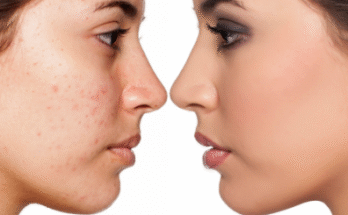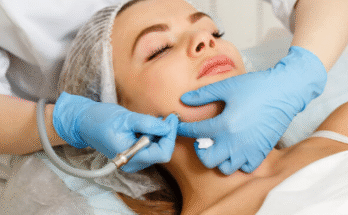Hormonal acne is one of those skin concerns that many people face at some point in life.
It can show up during the teenage years, in the early twenties, or even later in adulthood.
Unlike the occasional breakout that might appear after eating too much chocolate or forgetting to wash your face, hormonal acne is often more persistent.
It is linked to internal changes in the body, especially fluctuations in hormones such as androgens, estrogen, and progesterone. The good news is that while it can feel frustrating, there are practical ways to reduce the chances of breakouts and keep the skin looking clearer. Preventing hormonal acne is not about quick fixes but about building daily habits that support both skin health and overall well-being.
Understanding Why Hormonal Acne Happens
Hormonal acne usually develops because of an increase in oil production triggered by hormones. The skin has sebaceous glands that release sebum, a natural oil that keeps the skin hydrated. However, when hormone levels fluctuate, these glands can go into overdrive, creating excess oil. This extra oil, mixed with dead skin cells, can clog pores and lead to pimples, blackheads, or deep cystic spots. Stress, menstrual cycles, puberty, and even certain lifestyle choices can all play a role in these hormonal changes.
Recognizing the root cause of hormonal acne is the first step in learning how to prevent it. Once you know that the issue is not just about surface dirt but about what is happening inside the body, it becomes easier to take the right preventive steps.
Balancing Lifestyle Habits for Healthier Skin
One of the most powerful tools in preventing hormonal acne is creating a balanced lifestyle. Our daily choices around food, rest, and stress management directly affect hormone levels and, in turn, our skin health.
Sleep is often underestimated, but it is essential. When the body does not get enough rest, stress hormones such as cortisol increase. Elevated cortisol can stimulate oil production and worsen acne. Aiming for seven to nine hours of quality sleep each night gives the body time to repair itself and maintain a healthy hormonal balance.
Stress management is another key factor. Daily stress is nearly impossible to avoid, but how you handle it makes a difference. Relaxation techniques such as meditation, deep breathing, or light yoga can help regulate stress levels and prevent unnecessary hormonal spikes that may trigger breakouts. Even taking a short walk outside or reading a favorite book can make a noticeable difference in how the body responds to stress.
Nutrition and Hormonal Balance
Food choices play a surprisingly important role in skin health. Diets high in refined sugar, processed snacks, or unhealthy fats may cause sharp spikes in blood sugar, which in turn can influence hormones and sebum production. Over time, this can contribute to acne flare-ups.
On the other hand, whole foods that are rich in vitamins and minerals can support hormone balance. For example, leafy greens provide antioxidants, while foods high in omega-3 fatty acids, such as salmon, walnuts, and flaxseeds, help reduce inflammation. Choosing complex carbohydrates like brown rice, quinoa, and sweet potatoes helps keep blood sugar stable and avoids the sharp spikes that often lead to breakouts.
Hydration should not be overlooked. Drinking enough water throughout the day supports detoxification and helps the skin remain resilient. While water itself does not directly cure acne, it assists the body in maintaining balance and supports the skin’s natural healing process.
Gentle and Consistent Skincare Routine
While internal balance is essential, the way you care for your skin on the outside matters just as much. Preventing hormonal acne requires a gentle, consistent skincare routine rather than aggressive scrubbing or harsh treatments that can irritate the skin.
A mild cleanser used twice a day can remove dirt, oil, and impurities without stripping the skin of its natural barrier. Harsh soaps or excessive washing may lead the skin to produce even more oil as a defense mechanism, which can make breakouts worse.
Exfoliation is beneficial when done in moderation. Using a gentle exfoliant once or twice a week helps remove dead skin cells and prevents pores from becoming clogged. However, over-exfoliation can cause irritation and lead to inflammation.
Moisturizing is also important, even for oily or acne-prone skin. Lightweight, non-comedogenic moisturizers provide hydration without blocking pores. Many people with acne-prone skin skip moisturizer, but this can cause the skin to become dry, which then signals the glands to produce more oil, worsening the cycle.
Finally, sunscreen should be a daily habit. Sun damage not only increases the risk of premature aging but can also trigger more breakouts for some people. Choosing a broad-spectrum sunscreen designed for acne-prone skin ensures protection without clogging pores.
Supporting Hormonal Balance Through Movement
Exercise is another factor that can prevent hormonal acne. Regular physical activity supports healthy blood circulation, helps manage stress, and assists the body in regulating hormones more effectively. Sweating during a workout helps clear out toxins, but it is essential to wash the skin afterward to avoid pore blockages.
The type of exercise does not need to be intense. Even simple activities such as walking, cycling, or dancing can have a positive effect on hormone balance and skin health. The key is consistency rather than extreme effort.
Avoiding Common Triggers
Some habits and products can unintentionally trigger hormonal acne. For example, heavy makeup that is not removed properly can clog pores. Using makeup labeled as non-comedogenic reduces this risk. It is also important to clean makeup brushes regularly and avoid touching the face frequently throughout the day, as this transfers oils and bacteria from the hands to the skin.
Another common trigger is hair care products that contain heavy oils or waxes. When these products come into contact with the skin, especially around the forehead or jawline, they can contribute to clogged pores and acne. Being mindful of where these products are applied and ensuring the skin is cleansed properly can help reduce the risk.
When to Seek Professional Support
For some people, lifestyle changes and consistent routines may not fully prevent hormonal acne. In such cases, consulting a dermatologist can provide additional solutions. Professionals can identify whether breakouts are linked to deeper hormonal imbalances and recommend treatments that are safe and effective for long-term management.
It is important to remember that everyone’s skin is unique. What works for one person may not work for another, and finding the right combination of habits may take time. Patience and persistence are key.
Conclusion: Building a Skin-Friendly Lifestyle
Preventing hormonal acne is less about searching for a miracle product and more about creating habits that keep the body and skin in harmony. By focusing on sleep, stress management, balanced nutrition, gentle skincare, and regular movement, it is possible to reduce the likelihood of breakouts and support clearer skin over time. Hormonal fluctuations are a natural part of life, but with the right approach, they do not have to control the health of your skin.
Instead of viewing hormonal acne as a battle, think of it as a reminder that your skin is closely connected to your overall well-being. Taking care of your body inside and out not only helps prevent breakouts but also builds confidence and encourages a healthier lifestyle overall.

